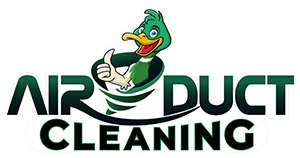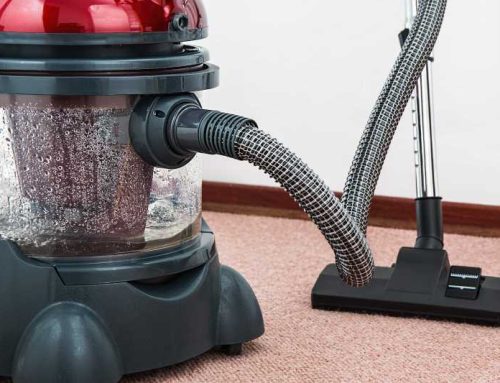Understanding the impact of pesticides on indoor air quality is crucial for maintaining a healthy and safe environment in your home or office. Pesticides, often used to control pests and improve crop yield, can inadvertently contaminate the air we breathe indoors, leading to a range of health issues. As a leading provider of air duct cleaning services, we at (832) 777-5400, are committed to educating our customers about the importance of clean indoor air and the potential hazards of pesticide exposure. Our team of experts uses advanced techniques and high-quality products to ensure the air in your property is safe and clean. This blog post will delve into the effects of pesticides on indoor air quality, providing valuable insights to help you make informed decisions about your indoor air health. Stay tuned for practical tips on how to mitigate the risks associated with pesticide use and enhance your indoor air quality.
Understanding the Connection between Pesticides and Indoor Air Quality
Pesticides, commonly used in agriculture and home gardening, are known to have significant impacts on the environment and human health. However, their influence extends beyond the outdoor environment, affecting indoor air quality as well. This connection between pesticides and indoor air quality is a crucial aspect to consider in maintaining a healthy living environment.
Pesticides can infiltrate indoor environments through various means. For instance, they can be brought into homes on shoes, clothing, or pets, or they can drift indoors from outdoor applications. Once inside, these chemicals can linger in the air and on surfaces, contributing to indoor air pollution.
According to the United States Environmental Protection Agency (EPA), indoor air can be two to five times more polluted than outdoor air, and in some cases, up to 100 times more polluted. This is a significant concern as people spend approximately 90% of their time indoors. The EPA also notes that certain pesticides can contribute to indoor air pollution, which can cause a range of health issues, from respiratory problems to neurological damage.
“Certain pesticides can contribute to indoor air pollution, which can cause a range of health issues, from respiratory problems to neurological damage.” – United States Environmental Protection Agency
The impact of pesticides on indoor air quality is further exacerbated by the fact that many homes are not adequately ventilated, allowing these chemicals to accumulate over time. This is where the importance of regular air duct cleaning comes into play.
Air duct cleaning is a process that involves the removal of dust, mold, and other contaminants from the heating, ventilation, and air conditioning (HVAC) system in a home. By doing so, it helps to improve indoor air quality and reduce exposure to harmful pollutants, including pesticides.
How air duct cleaning works is a process that involves the use of specialized tools and equipment to thoroughly clean the ductwork and other components of the HVAC system. This process not only removes accumulated dust and debris but also dislodges and eliminates any pesticide residues that may have settled in the ducts.
Moreover, how often should air ducts be cleaned is a common question among homeowners. While there is no one-size-fits-all answer, it is generally recommended to have your air ducts cleaned every three to five years. However, this frequency can vary depending on several factors, such as the presence of pets, smokers, or individuals with allergies or asthma in the home.
In conclusion, understanding the connection between pesticides and indoor air quality is essential in maintaining a healthy living environment. Regular air duct cleaning can play a significant role in mitigating the impact of pesticides on indoor air quality, contributing to a healthier and safer home.
- United States Environmental Protection Agency. (n.d.). Indoor Air Quality (IAQ). Retrieved from https://www.epa.gov/indoor-air-quality-iaq
- National Pesticide Information Center. (n.d.). Pesticides and Indoor Air Quality. Retrieved from http://npic.orst.edu/health/indoorair.html
- Air Duct Cleaning. (n.d.). How Air Duct Cleaning Works. Retrieved from https://www.airductcleaning.net/how-air-duct-cleaning-works/
- Air Duct Cleaning. (n.d.). How Often Should Air Ducts Be Cleaned. Retrieved from https://www.airductcleaning.net/how-often-should-air-ducts-be-cleaned/
The Detrimental Effects of Pesticides on Indoor Air Quality
Pesticides are commonly used in homes and gardens to control pests and insects. While they are effective in their primary function, they can have a significant negative impact on indoor air quality, posing potential health risks to the occupants of the house.
When pesticides are sprayed, they release volatile organic compounds (VOCs) into the air. These VOCs can linger in the indoor environment for a long time, leading to poor indoor air quality. The presence of these compounds in the air can cause a variety of health problems, including respiratory issues, allergies, and even neurological problems.
Moreover, pesticides can also contaminate the air ducts in your home. When pesticides are sprayed, they can get into the air ducts and accumulate over time. This can lead to the continuous release of harmful chemicals into the indoor environment, further deteriorating the air quality.
The use of pesticides can also lead to the growth of mold in air ducts. Some pesticides contain ingredients that can promote the growth of mold. When these pesticides are sprayed, they can get into the air ducts and create a conducive environment for mold growth. Mold spores can then be released into the indoor environment, causing a variety of health problems, including respiratory issues and allergies.
To mitigate the detrimental effects of pesticides on indoor air quality, it is crucial to maintain clean air ducts. Regular air duct cleaning can help remove the accumulated pesticides and mold from the ducts, improving the indoor air quality.
In addition, it is also important to use pesticides judiciously. Avoid overusing pesticides and always follow the manufacturer’s instructions. Consider using natural alternatives to pesticides whenever possible.
Furthermore, ensure proper ventilation in your home to dilute the VOCs released by pesticides. Open windows and doors to allow fresh air in and use exhaust fans to remove contaminated air.
Lastly, consider investing in an air purifier. Air purifiers can help remove VOCs and other pollutants from the indoor air, improving the air quality.
In conclusion, while pesticides are effective in controlling pests and insects, they can have a significant negative impact on indoor air quality. Therefore, it is crucial to take steps to mitigate these effects, such as maintaining clean air ducts, using pesticides judiciously, ensuring proper ventilation, and using air purifiers.
For more information on how to maintain clean air ducts and improve indoor air quality, visit our blog and learn more about us and our services.
In conclusion, the impact of pesticides on indoor air quality is a significant concern that requires immediate attention. Pesticides, while beneficial in controlling pests, can have detrimental effects on our health and the quality of air we breathe indoors. They can linger in the air for extended periods, leading to a range of health issues, from minor irritations to severe conditions like cancer and neurological disorders. Therefore, it is crucial to adopt safer pest control methods and improve ventilation in our homes and workplaces. Regular monitoring and testing of indoor air quality can also help in early detection and mitigation of pesticide pollution. As we continue to understand the full extent of pesticides’ impact on indoor air quality, it becomes increasingly clear that we must prioritize the health of our environment and ourselves over convenience.





